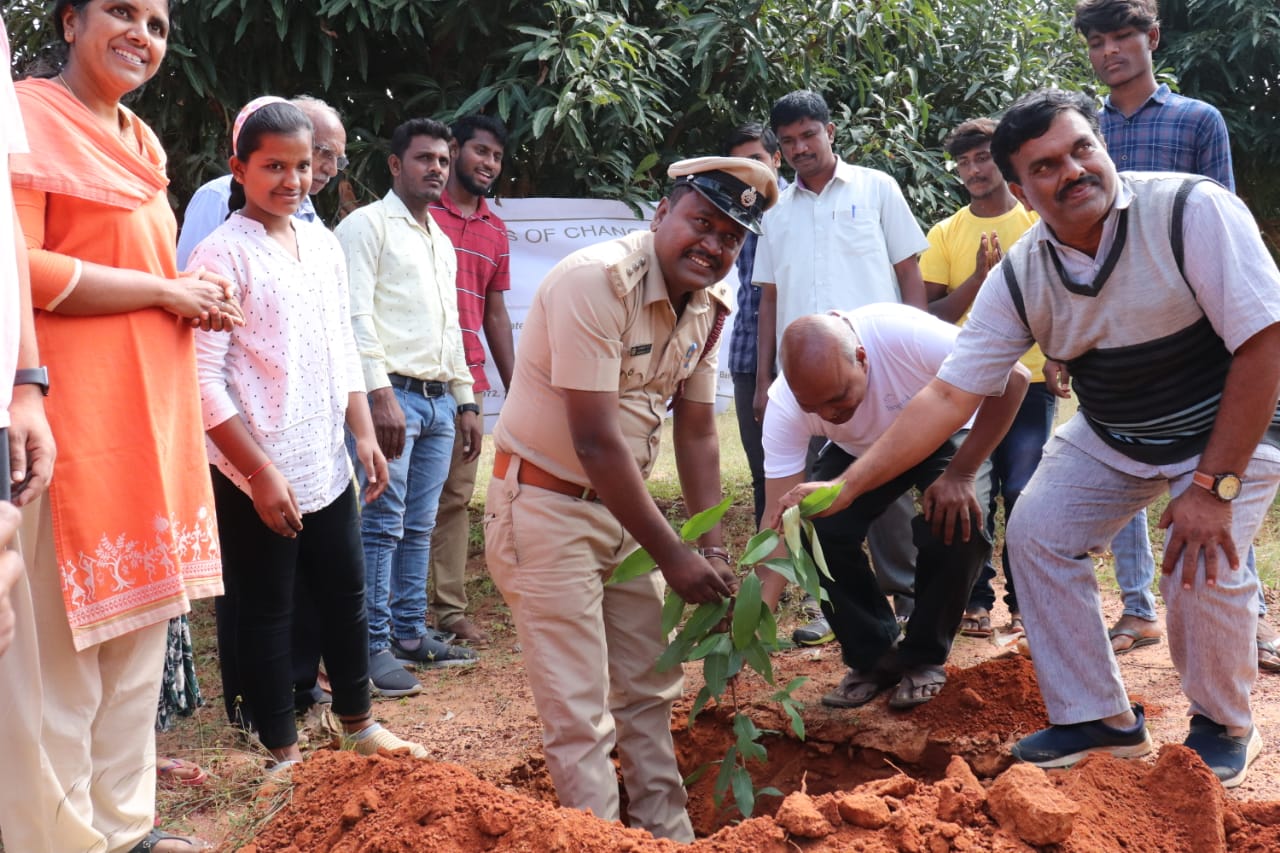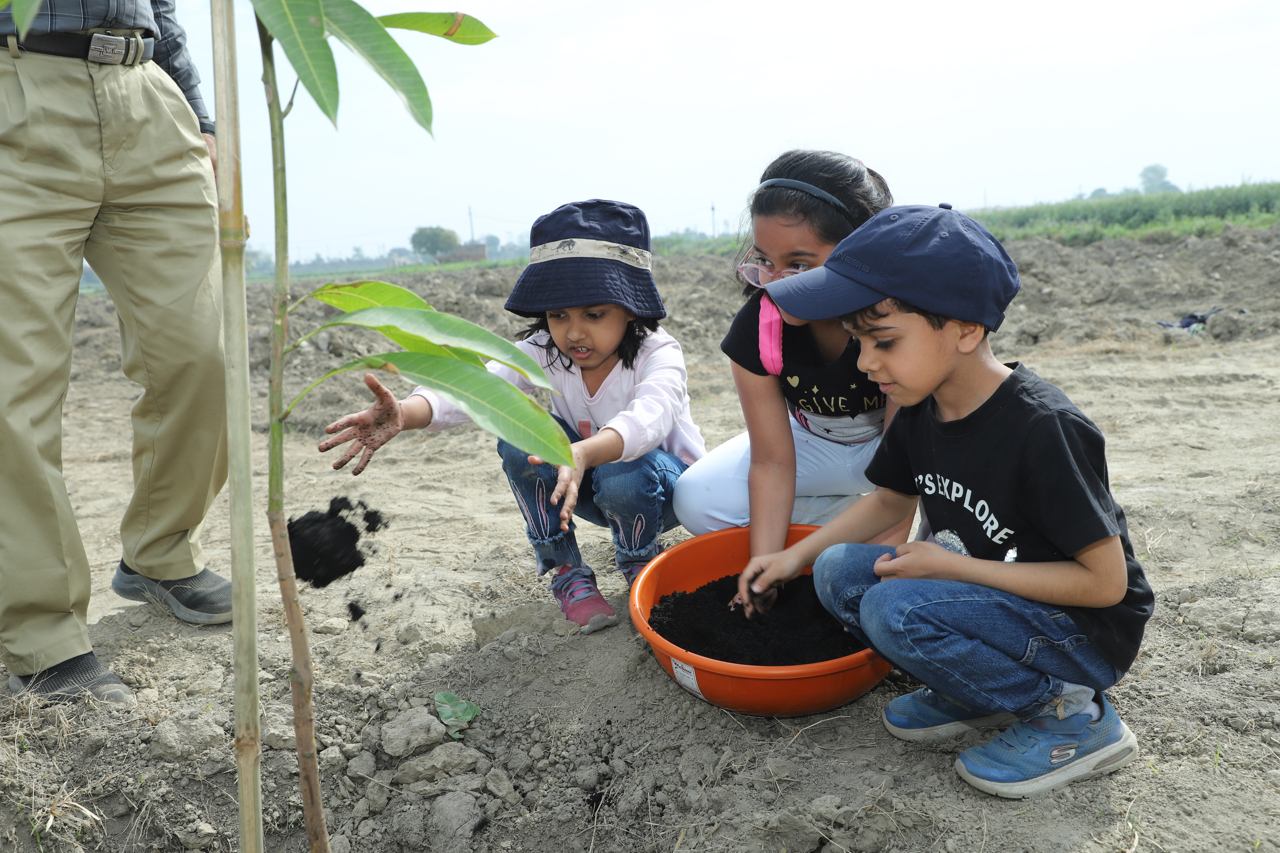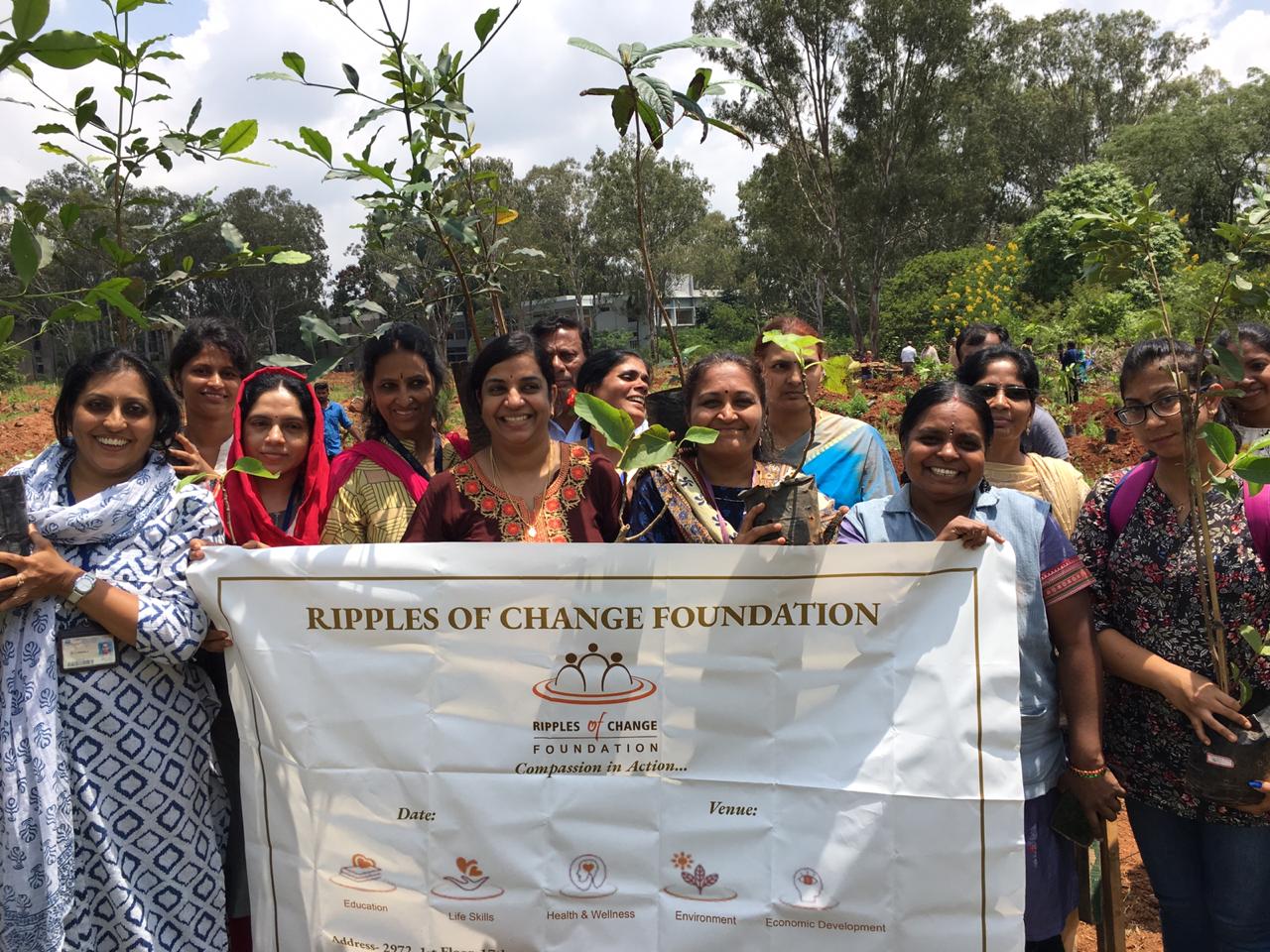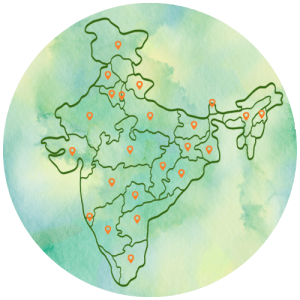“Ecological sustainability and conservation for current and future generations”
Our environment program focuses on conserving existing natural resources, restoring degraded ecosystems and taking climate action thereby creating a better world for humans and other species.
India is highly vulnerable to Climate Change impacts that vary based on region and population exposed. Vulnerable communities are the first victims and casualties of climate change.
In this context some of the efforts have been towards climate education and awareness, reviving endangered plant species, restoring degraded forests, grasslands, wetlands, drylands, mountains and other terrestrial ecosystems, increasing green cover, supporting communities for better natural resource management, reducing pollution through proper waste management.
We believe this approach will help achieve ecological sustainability for the present and generations to come.
Forests by Heartfulness Project is an initiative of Heartfulness Institute that aims to increase the green cover in the country by planting 30 million indigenous and threatened tree species. The project is funded by various government and private funding agencies and implemented by engaging local communities in the region. The project is an ecological movement aimed at creating spaces for humans to coexist in harmony with nature.

We have collaborated with Forests by Heartfulness in this movement as it aligns with our goals and values. We have carried out numerous Tree Planting events by engaging youth, students, local citizens and officials in Bhopal, Bangalore and Chikkaballapur. A sense of ownership and accountability is inculcated among the participants and communities to carry out the nurturing and sustenance of the saplings.
So far we have engaged 140 participants and volunteers and have planted over 200 saplings that benefit 1186 community members.

Climate Resilient Schools aims at nurturing a Climate smart generation by engaging school children in positive Climate Action. The program has components of climate curriculum, ecological tours, toxic tours, experiential learning, exposure visits to Sustainable and pilot models etc. The project has been kick started in Rural Bangalore in collaboration and partnership with Sahitya School. An automated weather station has been set up for providing access to local weather data to the students, faculty and other stakeholders in the region. The students will become earth stewards who practice and preach Climate action to the neighbouring schools and communities.

As part of the awareness campaigns, we partnered with Padma Shri Saalumarada Thimmakka hailing from Karnataka who is lovingly called the Mother of Trees for planting more than 8000 trees. In collaboration with Saalumarada Thimmakka International Foundation we conducted various awareness sessions for students and youth. We believe that youth can be stewards of environmental protection by influencing their immediate family, friends, relatives and surroundings by positively interacting with nature and making informed lifestyle choices. We continue to instill ecological consciousness among them for a long term sustainable impact.
So far we have reached 850 students and youth through our awareness programs and campaigns focused on environment conservation.
In many parts of the world, women play a pivotal role in agriculture, contributing significantly...
The Chikka Timmasandra Lake Restoration project in Bangalore, Karnataka, is a transformative initiative aimed at...
In a momentous occasion that marked a significant step towards sustainable education and environmental consciousness,...




Email: info@rocf.org
Phone: +91-97877 99042
Address: 2972, 17th Cross, Off K.R. Road,
Banashankari 2nd Stage, Bangalore,
Karnataka – 560070, India

A management professional with 24 years of experience in international leadership positions in India, Africa, South Asia, Europe, and the United Kingdom, graduated from India’s Symbiosis Institute of Business Management with an MBA in marketing. He has led teams of up to 6500 personnel and has executed top-notch processes for sales, operations, human resources, quality assurance, and auditing. He has led and carried out programs for vulnerable communities in India and Africa, focusing on education, economic empowerment, life skills, the environment, sanitation, healthcare, and nutrition. In 2011, the Lions Club International Foundation awarded him the Melvin Jones Fellowship for his humanitarian work, and in 2014, the Lions Club International President’s Certificate of Appreciation was given for his outstanding accomplishments in carrying out the organization’s mission.